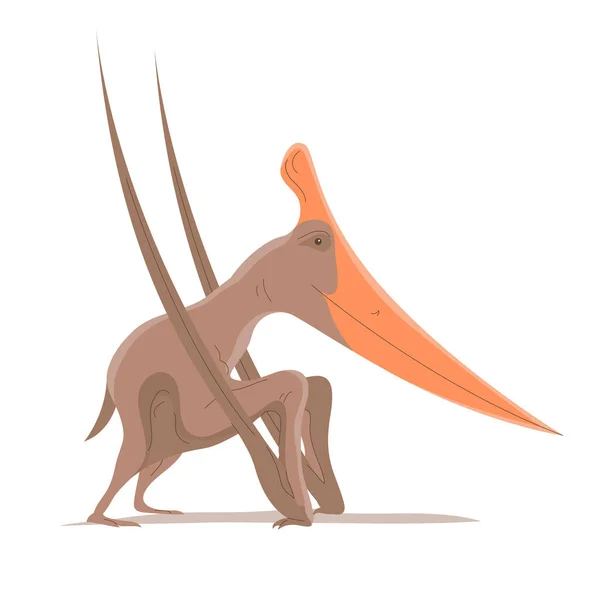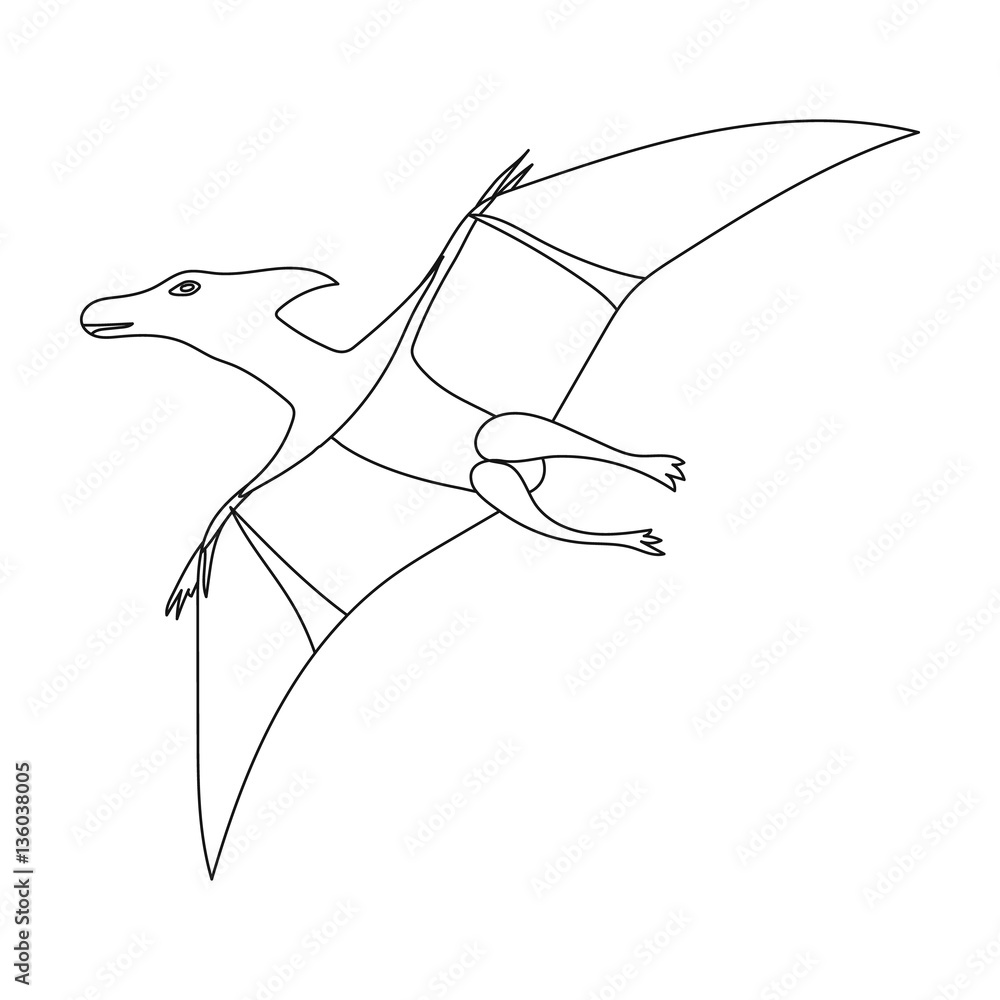PDF] Comments on the Pteranodontidae (Pterosauria, Pterodactyloidea) with the description of two new species.
Por um escritor misterioso
Descrição
Based on several cranial features, some specimens previously referred to the genus Pteranodon are re-evaluated leading to the recognition of the following species, two of which new that are described here: PTeranodon longiceps, Geosternbergia sternbergi, Geosterbergia maiseyi sp. Considered one of the best known flying reptiles, Pteranodon has been subject to several reviews in the last century. Found exclusively in the Upper Cretaceous Niobrara Formation and Pierre Shale Group 11 species have been attributed to this genus (excluding the ones presently regarded as representing Nyctosaurus). While reviewers agree that this number is inflated, there is disagreement on how many species can be identified. The last review recognized only two species (Pteranodon longiceps and Pteranodon sternbergi) both being sexually dimorphic. Based on several cranial features, some specimens previously referred to the genus Pteranodon are re-evaluated leading to the recognition of the following species, two of which new that are described here: Pteranodon longiceps, Geosternbergia sternbergi, Geosternbergia maiseyi sp. nov., and Dawndraco kanzai gen. et sp. nov. They differ mainly by features such as the direction and extension of the frontal crest, the angle and extension of the posterior process of the premaxillae, the shape and extension of the lower temporal fenestra and the length and proportion of the rostrum. The procedures to recognize a pterosaur species are also discussed here, and must take into account primarily morphology, in conjunction with stratigraphic and geographic data. Although well aware that changes in morphology not always reflect taxonomy, the lack of stratigraphic data and the limited number of specimens that can be confidently assigned to one species hampers our understanding on the morphological variations as a function of ontogeny, individual variation and sexual dimorphism. Although the present study has not eliminated the possibility to recognize such differences, caution is needed before models are generalized for pterosaurs.
![PDF] Comments on the Pteranodontidae (Pterosauria, Pterodactyloidea) with the description of two new species.](https://i1.rgstatic.net/publication/335923705_Nurhachius_luei_a_new_istiodactylid_pterosaur_Pterosauria_Pterodactyloidea_from_the_Early_Cretaceous_Jiufotang_Formation_of_Chaoyang_City_Liaoning_Province_China_and_comments_on_the_Istiodactylidae/links/5d83b5da458515cbd19b547b/largepreview.png)
PDF) Nurhachius luei , a new istiodactylid pterosaur (Pterosauria, Pterodactyloidea) from the Early Cretaceous Jiufotang Formation of Chaoyang City, Liaoning Province (China) and comments on the Istiodactylidae
![PDF] Comments on the Pteranodontidae (Pterosauria, Pterodactyloidea) with the description of two new species.](https://static.cambridge.org/binary/version/id/urn:cambridge.org:id:binary:20210611100602740-0604:S0016756820001119:S0016756820001119_fig8.png?pub-status=live)
A large pteranodontid pterosaur from the Late Cretaceous of Eastern Europe, Geological Magazine
![PDF] Comments on the Pteranodontidae (Pterosauria, Pterodactyloidea) with the description of two new species.](https://www.mdpi.com/diversity/diversity-14-00741/article_deploy/html/images/diversity-14-00741-g001.png)
Diversity, Free Full-Text
![PDF] Comments on the Pteranodontidae (Pterosauria, Pterodactyloidea) with the description of two new species.](https://media.springernature.com/lw685/springer-static/image/art%3A10.1038%2Fsrep06329/MediaObjects/41598_2014_Article_BFsrep06329_Fig2_HTML.jpg)
An Early Cretaceous pterosaur with an unusual mandibular crest from China and a potential novel feeding strategy
![PDF] Comments on the Pteranodontidae (Pterosauria, Pterodactyloidea) with the description of two new species.](https://pterosaurheresies.files.wordpress.com/2011/08/pteranodon-skulls588click.jpg?w=640)
The Family Tree of the Pterosauria 15 – Pteranodon
![PDF] Comments on the Pteranodontidae (Pterosauria, Pterodactyloidea) with the description of two new species.](https://zookeys.pensoft.net/showimg/oo_30662.jpg)
Review of taxonomy, geographic distribution, and paleoenvironments of Azhdarchidae (Pterosauria)
![PDF] Comments on the Pteranodontidae (Pterosauria, Pterodactyloidea) with the description of two new species.](https://ars.els-cdn.com/content/image/1-s2.0-S0195667120303293-gr11.jpg)
A long-billed, possible probe-feeding pterosaur (Pterodactyloidea: ?Azhdarchoidea) from the mid-Cretaceous of Morocco, North Africa - ScienceDirect
![PDF] Comments on the Pteranodontidae (Pterosauria, Pterodactyloidea) with the description of two new species.](https://i1.rgstatic.net/publication/44646905_A_New_Pterosaur_Pterodactyloidea_Azhdarchidae_from_the_Upper_Cretaceous_of_Morocco/links/0c96051c071d6aad81000000/largepreview.png)
PDF) A New Pterosaur (Pterodactyloidea: Azhdarchidae) from the Upper Cretaceous of Morocco
![PDF] Comments on the Pteranodontidae (Pterosauria, Pterodactyloidea) with the description of two new species.](https://media.springernature.com/m685/springer-static/image/art%3A10.1038%2Fsrep06329/MediaObjects/41598_2014_Article_BFsrep06329_Fig4_HTML.jpg)
An Early Cretaceous pterosaur with an unusual mandibular crest from China and a potential novel feeding strategy
![PDF] Comments on the Pteranodontidae (Pterosauria, Pterodactyloidea) with the description of two new species.](https://d3i71xaburhd42.cloudfront.net/9ff3747aca3195b72a38f536b01d82452526155a/4-Figure3-1.png)
PDF] PRELIMINARY RESULTS OF A PHYLOGENETIC ANALYSIS OF THE PTEROSAURS FROM WESTERN LIAONING AND SURROUNDING AREAS
![PDF] Comments on the Pteranodontidae (Pterosauria, Pterodactyloidea) with the description of two new species.](https://0.academia-photos.com/attachment_thumbnails/44765790/mini_magick20190213-26154-nhgb48.png?1550115769)
PDF) Comments on the cervical vertebrae of the Tapejaridae (Pterosauria, Pterodactyloidea) with description of new specimens
![PDF] Comments on the Pteranodontidae (Pterosauria, Pterodactyloidea) with the description of two new species.](https://dfzljdn9uc3pi.cloudfront.net/2023/14829/1/fig-18-2x.jpg)
A taxonomic revision of the Sinopterus complex (Pterosauria, Tapejaridae) from the Early Cretaceous Jehol Biota, with the new genus Huaxiadraco [PeerJ]
![PDF] Comments on the Pteranodontidae (Pterosauria, Pterodactyloidea) with the description of two new species.](https://0.academia-photos.com/attachment_thumbnails/80361677/mini_magick20220206-4888-43qsxs.png?1644178272)
PDF) First complete pterosaur from the Afro-Arabian continent: insight into pterodactyloid diversity
![PDF] Comments on the Pteranodontidae (Pterosauria, Pterodactyloidea) with the description of two new species.](https://d3i71xaburhd42.cloudfront.net/b426b9992bf4a0a922a4b5228c21767ebbfb44b4/9-Figure2-1.png)
PDF] Comments on the Pteranodontidae (Pterosauria, Pterodactyloidea) with the description of two new species.
![PDF] Comments on the Pteranodontidae (Pterosauria, Pterodactyloidea) with the description of two new species.](https://pterosaurheresies.files.wordpress.com/2017/09/pteranodon_carpus_small_insitu.gif?w=584&h=569)
Pteranodon, The Pterosaur Heresies
de
por adulto (o preço varia de acordo com o tamanho do grupo)







